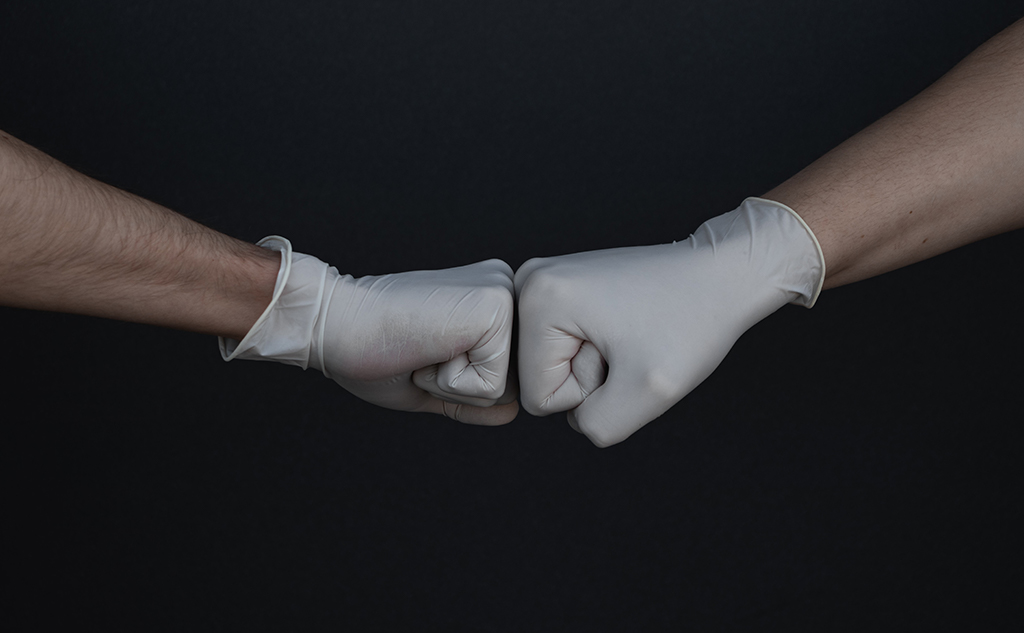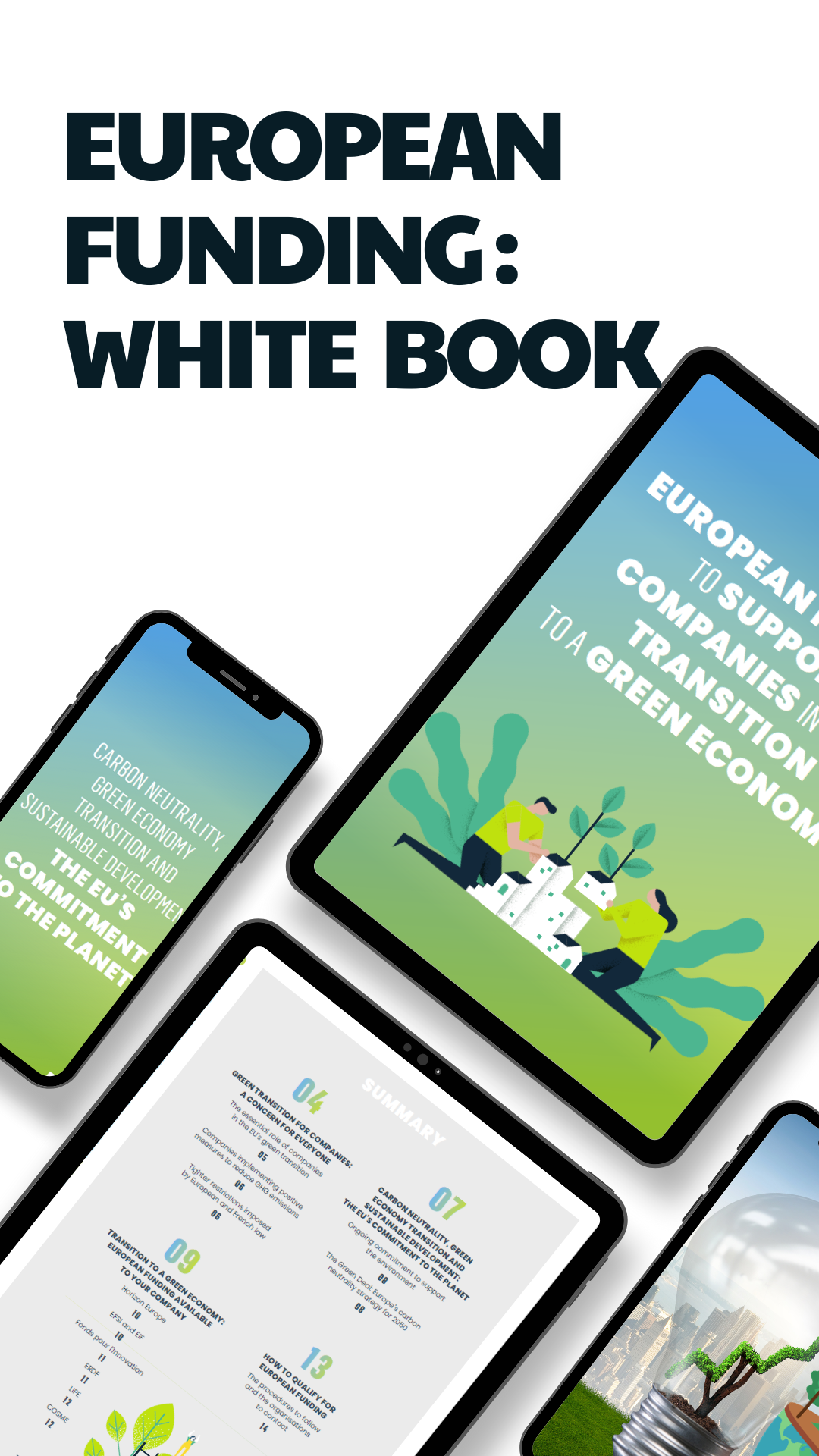If the times we live in have ushered in many constraints (compliance with instructions and protective measures, new ways of working such as part-time and remote work, postponement or even cancellation of projects etc.), they’ve also showcased an extraordinary surge in solidarity. Many research institutes, large groups or smaller companies have contributed through a range of remarkable actions. Here are just a few examples selected from Pollutec 2020 exhibitors, each serving to demonstrate that social responsibility and respect for the environment are far more than simply words on glossy paper, and instead represent real values.
Equipment donations to health workers
One of the most important actions is the donation of masks and other PPE to healthcare workers. At the end of March, for example, Inéris (French National Institute for Industrial Environment and Risks) donated 12,000 FFP2 masks to the Oise Prefecture to be passed on to hospitals, private practitioners and nurses, healthcare assistants, etc. IFP Energies Nouvelles donated 43,000 masks together with 400 disposable gowns, 200 safety glasses and 15,000 pairs of gloves to the Regional Health Authority in Lyon, as well as to hospitals, surgeries and fire stations. Another world-renowned research organisation, the CEA (French Alternative Energies and Atomic Energy Commission), provided masks, gloves and glasses, also launching a range of research projects and contributing to the design of a rapid screening test and devices for emergency respiratory assistance.
Commercial actors are also playing their part, with the Bouygues Group donating masks and facilitating increased visor production at its partner, Centrale Supélec’s FabLab. The Envea (formally Environnement SA) head office mobilised to donate 2,000 masks to the local hospital in Poissy-Saint-Germain en Laye, while Vega Techniques, another specialist in measurement technology, donated FFP2 masks to agency nurses, paramedics and doctors.
Adapting manufacturing tools to produce equipment
Others used and/or adapted their manufacturing tools to produce particular items. IFP Energies Nouvelles and its subsidiary Axens, for example, started 3D-printing visors and visor frames. Likewise, volunteers at Renault Trucks 3D-printed visors and safety glasses, which they sent to the Hospices Civils de Lyon and the Regional Health Authority, while other employees made disposable aprons and scrubs.
More specifically, KSB has provided its expertise in pumps and valves for the collective initiative launched by the Arts & Métiers school in Bordeaux to design closed-system tracheal valves for integration into ventilators with the aim of avoiding shortages at Bordeaux University Hospital. They did so in record time. KSB essentially designed the product, and selected the printing process and material to be used.
Volunteer emergency aid
Other types of action include the support of the most vulnerable and disadvantaged. Suez for example gave assistance to the Order of Malta and the Samu Social de Paris (a humanitarian emergency service) to support and help people living on the streets or who are most at risk. Veolia distributed hygiene and food parcels and took steps to provide the homeless with access to water. The group also provides operational and financial support to Lyon-based Unisoap, which collects and recycles hotel soaps and distributes them free-of-charge to the most vulnerable groups.
Actions directly related to companies’ own activities
Specialising in solutions for water quality monitoring, Aqualabo is working on coupling the BACTcontrol online solution (microLAN) with a mobile qPCR station: the first detects changes in E.coli indicator levels, while the second identifies pathogens. The whole could enable early detection (and so early warning) of SARS-CoV-2 in water. In the same vein, Bertin Technologies has joined forces with C4Diagnostics, a biotechnology specialist, and Enalees, an expert in molecular diagnostic testing on animals, to develop an ultra-fast onsite detection kit (less than 15 minutes). An initial version intended to detect the virus in the environment should soon be delivered to the Marseille Naval Fire Battalion, and a version aimed at the general public is undergoing approval testing at the end of May.
Other examples include the Suez Group making its “OnConnect Generation” service (presented at Pollutec 2018) available free-of-charge to all. This pilot preventive service allows carers to keep an eye on loved ones remotely. Veolia Group has also been distributing drinking water to remote residential areas in some of the countries in which it operates.
Finally, something more original idea from Renault Trucks with the setting-up of food trucks serving free meals to hauliers. Depending on the country, these services were delivered in the network’s garages (France), beside a motorway (Switzerland) or even in one of Spain’s largest wholesale markets.
Covid and the handling of infectious medical waste
Including masks, gowns, protective glasses, screening tests, swabs, and more, the amount of infectious and hospital waste generated by hospitals, care homes and other healthcare professionals has increased by 30% to 40%, depending on the region.
Although previously extremely strict regulations have been relaxed (with processing times being extended by two decrees, passed on 18 and 20 April 2020), the actors concerned (Pizzorno, Séché, Suez, Veolia, etc.) have mobilised to step-up their activity in this essential area, whether using incineration or sterilisation (steam or microwave disinfection).
It should also be mentioned that Bertin Technologies‘ Sterilwave solution was selected by the Chinese Ministry of Health as early as February for use in Wuhan hospitals, so avoiding cross-contamination of processing sites by transfer from trucks carrying contaminated waste.




